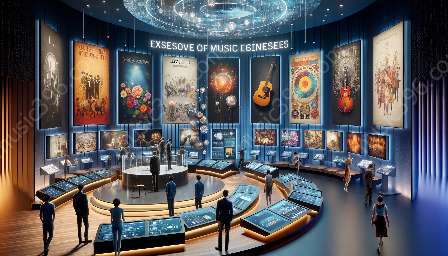Music has always played a significant role in advocating for social change and fostering activism. From the civil rights movement to contemporary protests, music has served as a powerful medium for expressing dissent, promoting social justice, and mobilizing communities. This topic cluster explores the intersection of music, activism, and social change, while drawing insights from critical musicology and musicology.
Critical Musicology and Its Relevance to Music-Related Activism
Critical musicology provides a valuable framework for examining the ways in which music intersects with social and political issues. It encourages a critical analysis of musical practices, genres, and movements, emphasizing the need to consider broader social contexts, power dynamics, and ideological implications. In the context of music-related activism, critical musicology offers a lens through which to unravel the complexities of music as a tool for challenging established norms and advocating for change.
Music as a Catalyst for Social Change
Throughout history, music has been a catalyst for social change, serving as a platform for voicing dissent and addressing systemic injustices. From protest songs that have rallied movements to anthems that have united communities, music has the power to shape narratives, provoke dialogue, and inspire collective action. Critical musicology underscores the resonance of music within the socio-political landscape, highlighting its role in challenging hegemonic structures and amplifying marginalized voices.
Music and Identity Politics
Music-related activism often intersects with identity politics, as artists and movements use music to confront issues of race, gender, sexuality, and other forms of social categorization. Through critical musicological inquiry, it becomes possible to discern the ways in which music both reflects and influences identity constructs, offering a space for contestation, reclamation, and empowerment. Examining music within the context of identity politics sheds light on the ways in which musical expressions contribute to broader discourses on social justice and equity.
Musicology's Exploration of Music as a Vehicle for Social Change
Within the field of musicology, scholars have delved into the historical and contemporary manifestations of music-related activism and its impact on social change. By examining specific musical movements, artists, and genres, musicology contributes to a deeper understanding of how music functions as a vehicle for driving social transformation, preserving cultural legacies, and shaping collective memory. Through archival research, ethnographic studies, and critical analysis, musicologists elucidate the multifaceted relationships between music, activism, and societal shifts.
The Intersection of Music and Social Movements
Musicology offers insights into the ways in which music has intersected with various social movements, ranging from anti-war protests to civil rights campaigns and indigenous rights advocacy. By situating music within the historical and sociopolitical contexts of these movements, musicologists uncover the strategic deployment of music as a tool for solidarity, resistance, and consciousness-raising. This multidisciplinary approach addresses music's capacity to fuel social movements and shape collective memories of transformative struggles.
Musical Practices and Ethical Engagement
Musicology explores the ethical dimensions of musical practices within the realm of activism, discerning the responsibilities and implications of engaging with music to promote social change. This critical inquiry involves examining issues of representation, cultural appropriation, and the ethical dilemmas faced by musicians and activists when utilizing music as a tool for advocacy. By engaging with these complexities, musicologists contribute to a nuanced understanding of the ethical imperatives inherent in music-related activism.
Music-Related Activism in Contemporary Contexts
Contemporary music-related activism has continued to shape discourses around social justice, environmental sustainability, and human rights. From anti-globalization movements to climate change advocacy, music has remained intertwined with calls for transformative change. Through the lenses of critical musicology and musicology, scholars and activists alike unpack the ways in which music continues to echo the urgent needs of contemporary social movements, contesting dominant narratives, and fostering inclusive spaces for dialogue and action.
The Digital Landscape and Activist Music-Making
The digital age has revolutionized the landscape of activist music-making, enabling greater accessibility, connectivity, and dissemination of socially conscious musical expressions. Critical musicology acknowledges the transformative potential of digital platforms, highlighting the democratizing impact of digital technologies on music-related activism. By examining digital music cultures, musicologists elucidate the ways in which technology has reshaped the dynamics of music production, distribution, and reception in the context of activism and social change.
Redefining Sonic Resistance and Dissent
In the contemporary epoch, musical expressions of resistance and dissent continue to evolve, redefining sonic landscapes as sites of contestation and imagination. Critical musicology delves into the subversive potential of sonic resistance, interrogating the ways in which contemporary musicians navigate and subvert power dynamics through their eclectic sonic productions. This critical lens provides a profound understanding of how music functions as a site of resistance in the face of hegemonic forces, reinforcing the transformative power of music to challenge the status quo.
Conclusion
The nexus of music-related activism and social change represents a rich terrain for critical engagement within the realms of critical musicology and musicology. By dynamically interrogating the intersections of music, activism, and social transformation, scholars and activists foster a deeper understanding of music's potential as a force for challenging injustices, amplifying marginalized voices, and envisioning alternative futures. This dynamic exploration seeks to empower individuals to leverage the power of music towards galvanizing movements, fostering empathy, and envisioning more just and equitable societies.



















